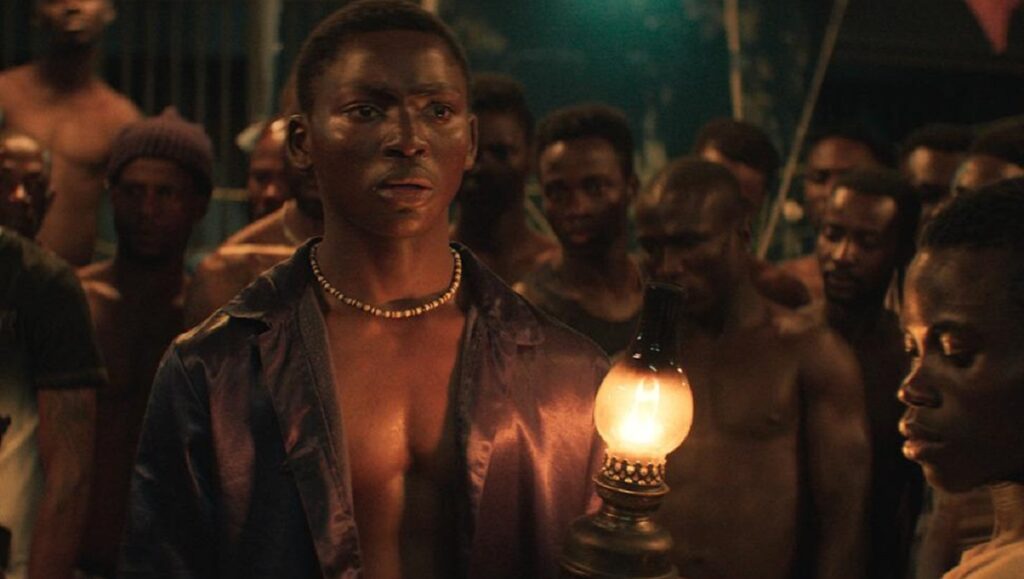Night of the Kings thrives on both its powerful sense of artifice and brutal reality.
Storytelling is at the crux of Philippe Lacôte’s entrancing sophomore feature, whose structural integrity depends upon a viewer’s willingness to accept its dramatic reflexivity. A mythopoetic work invoking the oral tradition of One Thousand and One Nights, and utilizing a Scheherazade-like figure as its bardic messenger, Night of the Kings intriguingly — and not ineffectively — infuses sociopolitical reality into a canvas of magical fantasy. This hybridization produces an atmosphere that’s at once earnest and self-aware — though the film as a whole is best described as theatrical cinema. This theatricality informs the political struggles taking place within the forbidding MACA prison of Côte d’Ivoire, where most of the film is set, and allows them to play out as literally as possible without the distractions of personal, anal-retentive intricacies.
An unnamed young man (Kone Bakary) is thrust into the raucous and chaotic MACA, and before he can overcome his initial disorientation he is singled out by the prison’s Dangôro (or supreme master) for the role of “Roman,” or storyteller. The occasion is a night when the moon turns red and Roman — a play on the French word for “novel” — will deliver a tale on prison grounds, in a ritual that signifies the end of the Dangôro’s reign and his naming of a successor. As the film’s opening intertitles reveal, the prison is “a world with its own codes and laws,” and this ritual, wherein the prisoners accept and perform their assigned roles without question, embodies tradition proper. Both political and narrative traditions, as it turns out: the former insofar as a sovereign hierarchy is upheld even through power successions, the latter via the act of storytelling as well as Lacôte’s stage-like presentation of it.
The rich tapestry of narrative threads interwoven within Night of the Kings transforms the concrete brutalism of MACA into a heightened and immersive communal space, celebrating the kineticism of bodies and words as they convey histories and fantasies both ancient and contemporary. As with Scheherazade, Roman’s fate depends on his ability to spin a tale past the morning sun, failing which he would be sacrificed. He gesticulates and orates on the life of Zama King, both an infamous Abidjan street bandit and an inhabitant of a mythical African kingdom. There’s an element of caricature to these stories, but Lacôte choreographs them impeccably and clearly elucidates his metafictional thesis on the promises such stories hold for the human imagination. It is enthralling to see Bakary, who plays Roman, having to improvise and expand on an elaborate palimpsest of Ivorian politics, youth disenfranchisement, and ancient mythology, not unlike the chameleon-like Denis Lavant who incidentally cameos as an inmate and advises Roman on the perils of concluding his tale. Lacôte’s title, likewise, is two-fold: there is the king who rules via the body politic, and the king who does so with words.
Originally published as part of Venice International Film Festival 2020 — Dispatch 3.


Comments are closed.